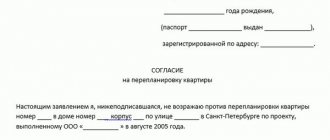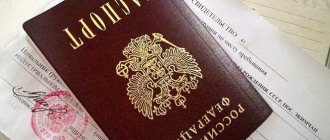Causes of noise from a neighboring apartment
The causes of noise can be completely different:
- Loud music.
- Repair work.
- Screams.
- Whistling.
- Singing.
- Playing musical instruments.
- Loud knocking, rustling, grinding.
It is necessary to distinguish between systematic noises, which can be generated by people or equipment at any time of the day, and loud sounds at night. The legal difference between them is that systematic noise is a violation of sanitary standards, and loud noises at night are a violation of administrative legislation.
Accordingly, neighbors need to act depending on the specific situation. Questions about regular violation of silence by devices and citizens during construction and road work, as a result of the activities of public catering organizations, the functioning of public transport, etc. fall within the competence of Rospotrebnadzor.
As for sharp sounds made at night (loud music, screams, whistling, singing, the use of pyrotechnics, repairs at neighbors' houses, etc.), these are offenses that police officers have the right to record. As for the consideration of cases of administrative offenses, the powers are vested either with internal affairs officers or administrative commissions.
Law on silence Moscow region 2021 fine
- from 19:00 to 9:00 and from 13:00 to 15:00, as well as on Sundays and non-working holidays when carrying out repair work, including reconstruction, redevelopment of residential premises and non-residential premises that are not the common property of the owners of the premises in the house. These restrictions do not apply to cases where the specified work is carried out within one and a half years from the date the house was put into operation. Other regions, in their regulations, may establish other times during which disturbance of the peace and quiet of citizens is not allowed.
How to measure noise level
To measure noise, special instruments called sound level meters are used. Noise can also be measured using special computer programs. Today there are even mobile phone apps that measure noise levels. Measurements made by non-professionals can only indicate that the noise level is exceeded, but the readings of such devices cannot serve as evidence in court.
If the noise in an apartment is systematically excessive, its residents need to seek professional help from specialists from Rospotrebnadzor (it is this authority that is empowered to monitor compliance with sanitary standards and rules).
Rospotrebnadzor specialists will measure the noise in the apartment, indicate the location of its source and draw up a competent conclusion, which can be used in the future when contacting law enforcement agencies or the court.
What kind of noise is considered a violation?
Potential sources of loud sound in new buildings and apartment buildings purchased on the secondary market may include:
- Car alarm operation.
- Uncontrollable baby crying.
- Cries for help.
- Dogs barking, cats meowing.
- Rearrangement in the apartment.
A TV set at full power can also serve as a reason for neighbors to contact law enforcement agencies. And this is where the conflict arises: if the manufacturer has not prohibited it, why is the sound considered prohibitive?
What noise level is acceptable?
The maximum permissible noise levels during the day and night in residential premises are given in the table in clause 6.3 of Sanitary Standards 2.2.4/2.1.8.562-96. Thus, the noise level during the day should not exceed 55 dB, and at night - 45 dB. If we are talking about hotels and hostels, then the indicators are 60 and 50 dB, respectively.
To make it easier to navigate these figures, you need to know that a clearly audible conversation between neighbors is a noise level of about 40–45 dB. An audible radio or TV is about 50–55 dB.
Fines for violation: how much to pay
As we have already said, for non-compliance with the above standards regarding noise after 23:00, administrative liability is provided, that is, a fine. In the capital, the fine for noise at night is:
- For ordinary citizens from 1,000 to 2,000 rubles.
- For enterprises - from 40,000 to 80,000 rubles.
- For officials - from 4,000 to 8,000 rubles.
For violations during the daytime the following penalties are provided:
- 100 - 1,000 rubles for a citizen (resident of an apartment building or private building);
- 500 - 2,000 rubles for an official;
- 10,000 - 20,000 rubles for enterprises. There may also be an option to temporarily stop working.
You can pay a fine for violating silence at any bank branch or deposit the required amount into your account through a terminal. Details for payment are indicated in the resolution.
Situations when you do not need to pay a fine:
- if the noise was aimed at preventing any accident;
- if the noise is the result of a natural disaster or emergency.
Sometimes there are also cases where the police do not charge a fine for a violation, but only issue a warning. If repeated complaints are received against such a citizen, then administrative liability awaits him.
When neighbors are not allowed to make noise
In addition to the maximum noise level, in Russian administrative legislation there is a ban on any loud sounds at night.
Night time is usually considered to be the period from 23 to 7 o'clock. During this period it is prohibited:
- listening to loud music, whistling, singing, screaming;
- carrying out construction, repair and other work that produces noise;
- use of pyrotechnics, etc.
However, the range of hours when noise cannot be made is established by regional legislation. And if you can’t make noise anywhere from 11 p.m. to 7 a.m., then additional restrictions may be established in a number of regions.
Thus, making noise may be prohibited during quiet hours - from 13 to 15 hours daily. Additionally, there may be additional restrictions for weekends and holidays. For example, a period of silence on weekends can last from 11 pm to 10 am, etc.
Also, do not forget that in some cases noise at night will be legal. For example, if utility services eliminate an accident, criminal activities are suppressed, etc.
In addition, ordinary human activity is not considered a violation of the legislation on silence. For example, if we are talking about the sound of water, crying children, etc.
When not to make noise: norms in the regions
It is impossible to say unequivocally how long it is impossible to make noise in an apartment. Although the general principle is that night is a time for sleep, different regions of the country have different requirements. The differences are small, but they are present. For example, in the capital the limit for noise is 22:00, while in the provinces the limit is 23:00.
It’s also not possible to say unambiguously until how long it is possible:
- Scream.
- Whistle.
- Play musical instruments.
- Conduct entertainment events.
- Swear.
- To sort things out with fists, etc.
When you can't make noise, you don't have to sleep or wear headphones. It is enough to put household sound-reproducing devices at low volume. The main requirement is that the noise does not disturb the neighbors. On the other hand, noise in an apartment is difficult to measure, because this requires specialized certified equipment.
During the day, according to the law of the Russian Federation, a so-called “quiet hour” is established. This is the period between noon and two o'clock in the afternoon. This measure is due to the fact that there are categories of citizens in need of social protection. These are children and elderly people who need a healthy afternoon nap. Otherwise, they experience deterioration in health, irritability, hypertension, and general malaise. Appetite and sleep suffer. The tone decreases. Therefore, everyone must respect this requirement.
Moscow, MSK and Moscow region
In the capital, people already live in a tense rhythm. In order not to suffer from depression, not to be overloaded, overtired, and to remain productive, citizens must rest. So at what time can you do repairs, listen to music, have celebrations? Here we need to distinguish between two cases:
- Moscow. Lights out at 23:00 Moscow time. 8 hours are allotted for sleep, as required by the Ministry of Health. From seven it is allowed to conduct normal activities until noon. Then the same repair work is resumed from two, not earlier.
- Moscow region. From Monday to Friday, unless these are holidays, drilling is allowed from eight in the morning to nine in the evening. On Saturday and Sunday, lights out at 22, and rise at 8. The same requirements apply to holidays.
But from one to three it is prohibited to carry out repair work related to the redevelopment of apartments in multi-storey buildings, when it is necessary to dismantle the partition. The ban is associated not only with noise, but also with vibrations that are transmitted through supporting structures throughout the building. And even in the neighboring entrances you can’t relax.
St. Petersburg, St. Petersburg
In this city, you can also drill on weekends only during daylight hours. To be precise, the start of work should not be earlier than seven in the morning. But if you look at what point it is not forbidden to do this, then until 12 noon. The same applies to holiday dates established at the state level. If someone did not have time to drill the wall, they will have to wait until the next day. If it is weekdays, then work is allowed until 11 pm. Restrictions apply not only to loud construction processes, but also to the usual movement of furniture.
Quiet on weekends and holidays
At such moments, most people are at home, and some take the opportunity to relax culturally with friends. Young people listen to music, dance and play. So, you can behave loudly from 10 to 22. However, for some cities, districts, districts, regions, it happens that this period is slightly modified. But as late as possible, sounds can be made no later than 23. And until ten or eleven, you need to give your neighbors the opportunity to sleep under any circumstances.
Holidays are considered to be those established by the state and approved by the Government of the Russian Federation. This means that an extraordinary weekend has been scheduled. That is, construction work that causes loud noise and vibrations is prohibited.
Only in some regions several hours in the first half of the day are allocated for this. An exception is repair work related to ensuring the safety of citizens and guests of Russia. In all other cases, it is believed that construction workers should rest.
Procedure step by step
So, if neighbors make noise at night or at other times that are considered quiet hours, you need to contact the police. Usually, in order to quickly record the facts of violation of silence, a duty squad is called.
The arriving police will conduct a conversation with noisy neighbors and, if necessary, draw up a report on an administrative violation.
After drawing up the protocol, it is submitted to the administrative commission, which will decide what punishment should be imposed on the offenders.
If noise limits are regularly exceeded during the day, for example, during construction work or the operation of certain equipment, then specialists from Rospotrebnadzor are invited to take noise measurements. The resulting conclusion will be evidence. How to use it is up to the residents themselves. You can file a complaint with Rospotrebnadzor, the prosecutor's office, you can file a lawsuit in court with a demand to oblige neighbors, other citizens or an organization to stop the relevant actions, to recover moral damages, etc.
What threatens violators?
Administrative liability for violating silence is established by regional administrative legislation. On average in Russia, violators of silence at night will face a fine in the range of 1,000–2,000 rubles.
If held accountable for violating sanitary requirements, Rospotrebnadzor employees may impose a fine on the culprit ranging from 500 to 1000 rubles. according to Art. 6.4 Code of Administrative Offenses of the Russian Federation.
So, the procedure for recording violations of silence and bringing violators to administrative or civil liability is spelled out quite clearly in the legislation. However, the amount of fines that violators can expect is insignificant.
Silence laws
Excessive noise at night is a violation of public order. In accordance with the law of the Russian Federation, a fine is established for this violation. Note that in Moscow and St. Petersburg the evening limit, when silence must be observed, begins at 23:00 and ends at 07:00. The Moscow region has different limits - from 22:00 to 08:00.
If one of the residents of the house listens to music loudly or makes repairs, you can complain about him and get a fine. It is enough to call the police and draw up a report. The funds collected from the violator go to the local budget. Arriving law enforcement officers subjectively determine the extent of the violation.










